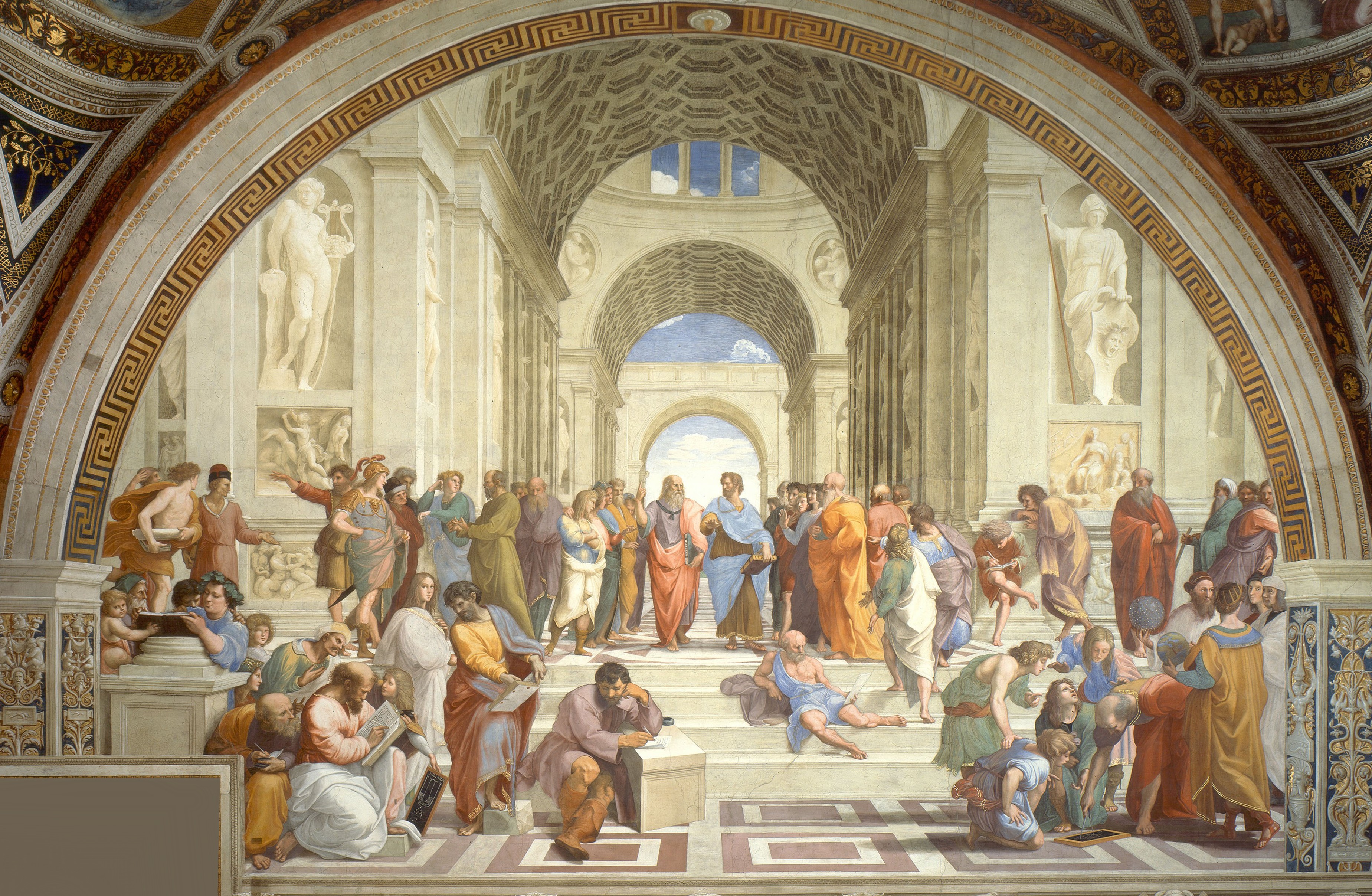 |
| Raphael's "School of Athens" (c.1510). Source: Wikimedia. |
 Rhetoric by Aristotle
Rhetoric by AristotleMy rating: 5 of 5 stars
Some of this book reads like a manual for living with what seem to be the simplest instructions imaginable. Wake up, lift the cover, put your feet on the floor, stand up, go to the bathroom, etc. Yet when one thinks about this being some of the earliest writings in recorded history, this instruction manual in how to be persuasive in speech and in writing states exactly what we teach our university students today. And therein lies the simplicity that belies its brilliance. This is my first cover-to-cover reading of Rhetoric. There are many references to Topics, Poetics, and Politics, and other works on rhetoric by other authors, but the reading of this work has inspired me to embark on a proper reading of the Great Books series, as set out by Hutchins and Adler at the University of Chicago, and I have begun at the beginning with Homer's Iliad. I recall a commentary on Darwin - George Bernard Shaw I think it was - that ran something like "once Darwin had proved, through systematic use of the evidence, that natural selection was a very real phenomenon, he did it over again with even more examples to the point of tedium". But Aristotle was the original. Simply reading this points me to the problem with all of my rejected papers - they are not systematic. I recall the guidance of my old professor: "When it is so simple it sounds too easy, then it is good". I also recall Antoine de Saint-Exupéry's [etc] "...has achieved perfection not when there is nothing left to add, but when there is nothing left to take away". Aristotle points to this and, much like Darwin, points to it again and again so as to remove all doubt. While reading Aristotle is much like my reading of J.S. Mill and Trotsky, as in it feels like I am reading my own knowledge in a book. Not because I am so knowledgeable, but because these authors permeated my education. Now, at least, I can see clearly where that education came from, and I am, strange as it may seem, excited about reading the Great Books I am yet to read.
View all my reviews
 Donate
Donate





No comments
Post a Comment